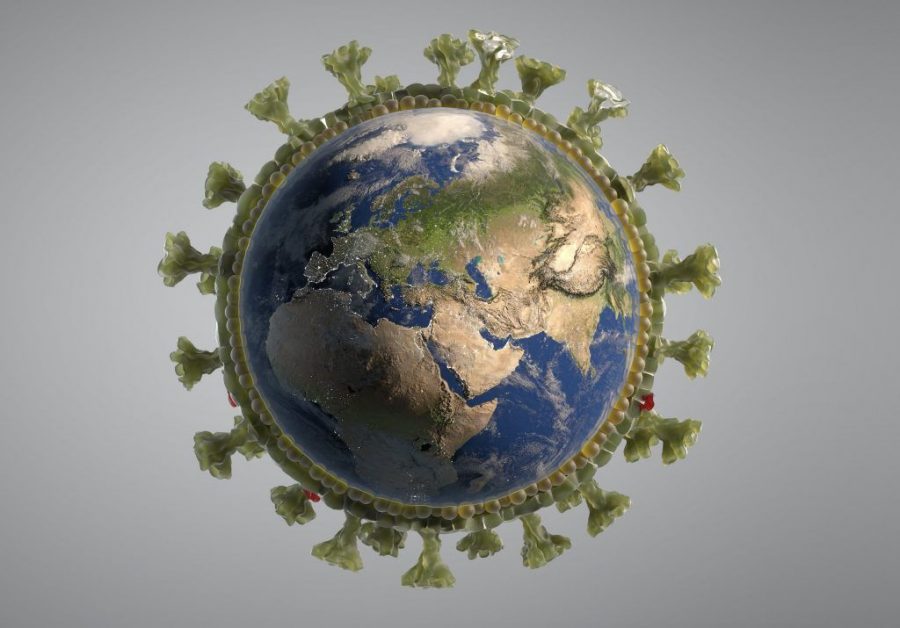Coronavirus Pandemic Leads to Unintended Environmental Effects
The coronavirus pandemic resulted in an increase in litter but decrease in air pollution. (Courtesy of Twitter)
April 22, 2020
Climate change awareness has been increasing in recent years, but in the midst of a global pandemic, these efforts have been pushed aside as countries combat COVID-19. This pandemic is having both positive and negative effects on our planet, according to an article by Wired.
Litter has spiked since the start of the pandemic because of the use of gloves, wipes and face masks in public places, reported the Washington Post.
New York City Mayor Bill de Blasio warned city residents during one of his daily conferences that this litter poses a threat to those who clean it up because coronavirus could unknowingly be on these gloves and masks.
Littered masks and gloves are neither recyclable nor biodegradable, meaning when they are thrown on the ground they are there to stay. Litter can end up in waterways and affect wildlife, since animals might mistake it for food, according to the RSPCA website.
“People litter because they can,” said Maggie Tattersfield, FCRH ’22, vice president of the USG sustainability committee. “They’re not used to having to change gloves after leaving the grocery store.”
Tattersfield referenced Fordham’s mantra of men and women for others. She said students should be leaders in their communities, spreading awareness about the issues of littering, for example, through social media and word of mouth.
And although much of the country is in isolation, there are still ways to limit our impact, said Tattersfield.
According to Tattersfield, students can curb the use of disposable items like paper plates and plastic utensils, limit deliveries, shop sustainably and cut back on car rides.
Coronavirus is not only influencing the environment through litter. Air pollution levels have plummeted in recent weeks, according to NASA’s website.
The first evidence of decreased air pollution came during China’s 11-week lockdown. The New York Times reported that air pollution dropped as the closure of nonessential businesses reduced road traffic.
Atmospheric chemist Róisín Commane, from the Lamont-Doherty Earth Observatory, reported that between March 13 and March 25, there was a 10% drop in carbon dioxide and methane and a 50% drop in carbon monoxide.
“We can suddenly see a clear and startling reality,” wrote Robin Andersen Ph.D., an environmental communications and media professor at Fordham, in an email to the Ram. “It’s a wonderful demonstration that we can actually bring back the natural world … relatively quickly.”
Andersen said air pollution contributes to respiratory issues that make diseases like COVID-19 more severe for some. Given the economic cost of social distancing, it is possible to decrease air pollution without completely halting society. We must shift to renewable energy and create economic policies that redistribute the job force into redesigned sustainable industries, said Andersen.
“So now we are confronted with a main question,” said Andersen. “Will we take the opportunity provided by the pandemic to move toward a more equitable society, one able to address climate and environmental issues, or will we simply go with the status quo?”


If you want a picture to show with your comment, go get a gravatar.